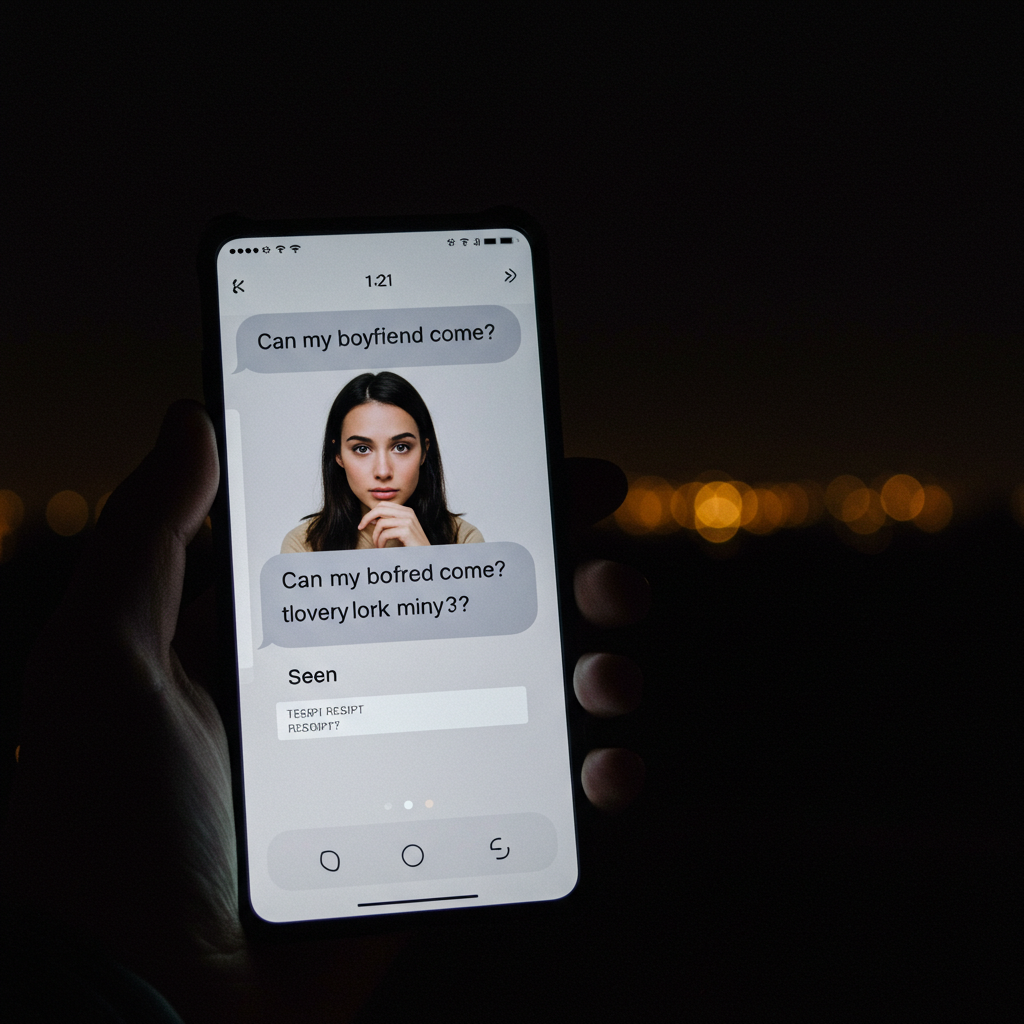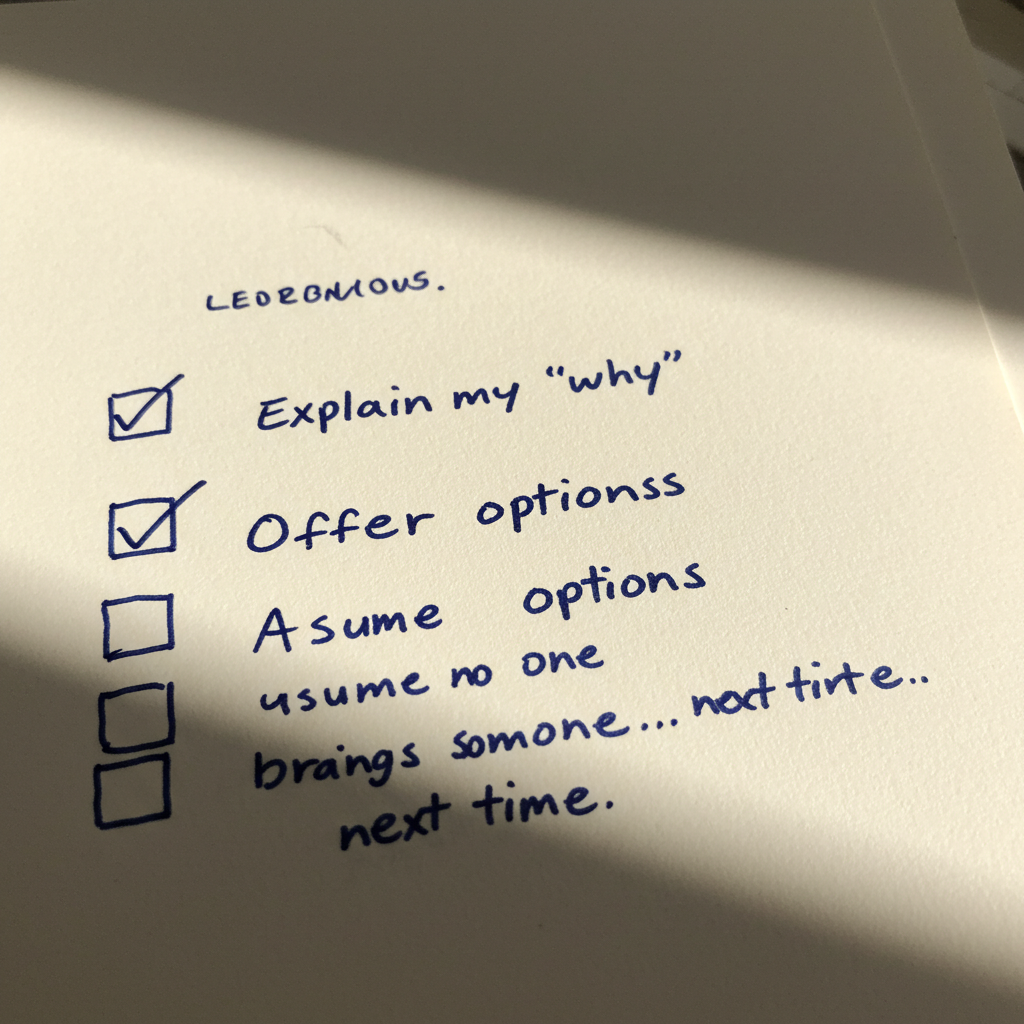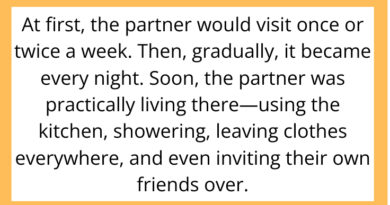AITAH for Not Letting My Best Friend Bring Her Boyfriend to My Birthday Trip?
Turning 30 is a milestone many people dream of celebrating in a special way. For me, it meant a long-planned weekend getaway with my closest friends—an intimate, relaxing escape to mark the end of a decade. Everything was perfect until one of my best friends dropped a request that threw everything off.
She wanted to bring her new boyfriend. I said no.
Now she’s upset, and some of our mutual friends think I’m being controlling. So, I turned to the internet: AITAH for setting boundaries around my own birthday trip?
The Setup: A Carefully Curated Celebration

I (30F) had been planning my birthday weekend for months. I booked a cozy cabin in the mountains with just enough space for six people—myself and five of my closest friends from different stages of my life.
The idea was simple: no stress, no drama, no plus-ones—just our group of longtime friends reconnecting, relaxing, and celebrating. Everyone agreed to this plan from the beginning.
That is, until two weeks before the trip.
The Request: A Plus-One Push

My best friend, Rachel, texted me to ask if her boyfriend, whom she’d been dating for three months, could come along. She said she hated the idea of leaving him alone for the weekend and thought it would be fun for everyone to get to know him.
I reminded her of the original plan. No partners, just our friend group. It wasn’t anything personal—I just wanted this particular trip to be about us.
Rachel didn’t take it well.
The Fallout: Hurt Feelings and Group Division

Rachel accused me of excluding someone important to her and not being supportive of her relationship. She said she’d feel awkward coming alone now, knowing her boyfriend wasn’t welcome.
A few of our mutual friends started chiming in, saying maybe I was being a bit too strict. “It’s just one extra person,” someone said. “It’s not like you’re paying for him.”
But that wasn’t the point.
This wasn’t about the money or the logistics. It was about preserving the space and energy of a gathering I had carefully created for a specific reason. This trip wasn’t a party—it was a shared moment among old friends. A boyfriend, no matter how nice, would change that dynamic.
The Debate: Am I the Villain for Saying No?

Let’s break down both sides.
Why I Might Be the Villain
-
Relationships Matter: Rachel sees this boyfriend as a serious part of her life. Rejecting him might feel like rejecting her choices.
-
A Simple Compromise: To others, saying yes might seem like a minor concession to keep the peace and make everyone happy.
-
Group Mentality: If multiple friends start siding with Rachel, maybe it’s a sign I’m out of step with what others wanted.
Why I Might Not Be
-
Clear Expectations: Everyone agreed in advance—no plus-ones. Changing that late in the game shifts the whole vibe.
-
It’s My Birthday: I should be allowed to design the trip in a way that feels special to me.
-
The Dynamic Would Change: Adding even one new person—especially someone unfamiliar—could affect how others behave, share, and connect.
Reddit Reacts: Setting Boundaries or Being a Birthday Tyrant?

If there’s one thing r/AITAH has taught us, it’s that boundaries are essential—but also controversial.
In similar posts, commenters have generally sided with people setting firm guest lists for personal events—especially birthdays. The consensus? You’re allowed to curate the experience you want, as long as you communicate openly and respectfully.
That’s what I tried to do. But is that enough?
The Bigger Issue: Are Plus-Ones a Right or a Privilege?

This story taps into a common question: Do people have the right to bring whoever they want to social gatherings?
The answer is—it depends.
For weddings or formal events, plus-ones are often expected. But for intimate gatherings like vacations, friend dinners, or birthday trips, hosts usually get the final say. Not every space is meant to include every person.
What seems like “just one person” to one friend might feel like an invasion of privacy or comfort to another.
How I Could Have Handled It Differently

While I still stand by my decision, maybe I could’ve softened the blow. Here are some things I might try next time:
-
Give Context: Explain that this isn’t about the boyfriend himself, but about preserving the original purpose of the trip.
-
Offer Alternatives: Maybe plan a separate get-together where everyone—including significant others—is invited.
-
Check in Early: Ask closer to the planning stage if anyone might want to bring a partner. That way, expectations are clear from the start.
Final Thoughts: No Doesn’t Mean Malice

AITAH? Maybe in Rachel’s eyes, yes. But sometimes being “the villain” in someone else’s story just means you stuck to your own boundaries.
It’s okay to want to protect the energy of an event you’ve planned for yourself. It’s okay to say no, even when it’s unpopular.
Saying yes out of guilt leads to resentment. Saying no with honesty and kindness leads to clarity.



